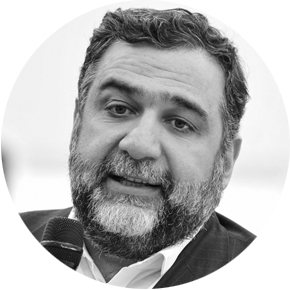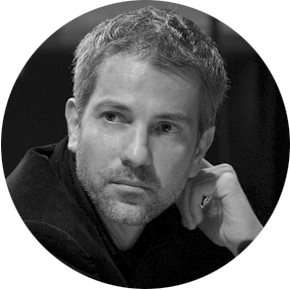– We survived two big crises in 2016: a war in the spring and a standoff at a police station in the summer. In your opinion, have the authorities and the public come to any serious conclusions? Maybe there is an understanding that something needs to be changed, but there is no practical will or resolution to do anything?
– I believe many people understand what happened, including Armenia’s leadership. However, there are various ways out of the current situation, and the main question is how ready is our society for change? I think that the April war and July events in Yerevan served as a wake-up call not only for the authorities, but also for Armenian society – both within the country and the diaspora. Profound changes are possible when there is an internal consensus in society, but it’s not clear that there is one right now.
We approached the 25th anniversary of Armenia’s independence in a situation where the country’s model of management, built during this period, has exhausted itself.
– Could you describe what you mean by that model?
– After the collapse of the USSR, the power in Armenia was taken by people born and raised in the Soviet system, or former dissidents, former Komsomol or Communist Party staff, former employees of special services. Many of them did and do love Armenia, however having no other experience in management but the one they witnessed in the Soviet Union, and having no opportunities to study in other countries, they recreated the management model that was the most comprehensible and familiar to them.
Those who can speak more languages, who are more cultured and better educated are left on the sidelines and unable to achieve any real success, because the dominant model in society is that of semi-criminal machismo.
They think tactically, not strategically. Many of them believe that abusing their position of power to earn money is just normal behavior, not corruption. Those who can speak more languages, who are more cultured and better educated are left on the sidelines and unable to achieve any real success, because the dominant model in society is that of semi-criminal machismo. In such an environment cultured and smart people have nothing else left to do but express their disagreement with words, not deeds.
In this model the leaders of the Armenian state don’t see themselves as leaders of the Armenian nation, which entails a clear distinction between Armenia as a country and a nation living all over the world. A part of the elite welcomes the diaspora’s assistance programs, accompanying it with, “We are happy to see you in Armenia, it’s beautiful and safe here, but don’t interfere with what we believe we should do, as there is much you don’t understand.”
Not a single one of the Armenian dairy products from 26 samples, which recently underwent independent testing, complied with standards, and this illustrates that in this model the health of our nation and our children is being sacrificed for the pursuit of “easy” money.
This model is built on the system of a closed society, and unfortunately, within it added value is formed not by the manufacture of new products or provision of services, but by the redistribution of resources - monopolization of imports, non-payment of customs fees, “appropriation” of assistance from international organizations, etc.
A lot of businessmen in Armenia got rich not because of their effective business management, but due to special preferences, tax evasion or manufacturing counterfeit or sub-standard products. This is not just about the oligarchs. Not a single one of the Armenian dairy products from 26 samples, which recently underwent independent testing, complied with standards, and this illustrates that in this model the health of our nation and our children is being sacrificed for the pursuit of “easy” money. The same goes for other products, and not all of them are produced by oligarchic structures, which is evidence of a serious problem and the general attitude to it.
An equally hot topic is house building standards, seismic safety norms in particular, which could potentially result in a huge number of casualties if a new earthquake hits the country. Today even new high-rise buildings in Yerevan get additional floors without any additional consideration of the increase of load on the supporting structures.
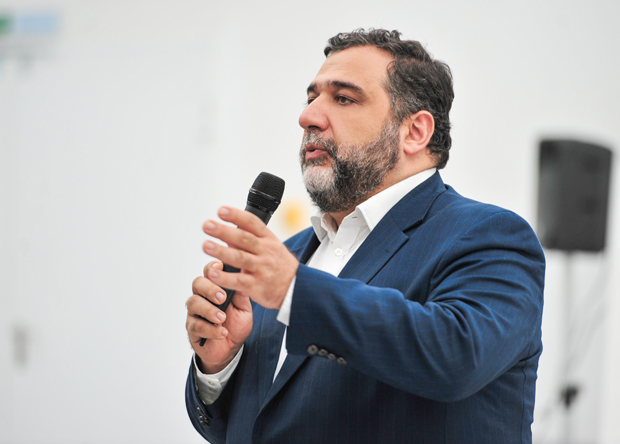 Ruben Vardanyan
Ruben VardanyanPhoto: MISiS NITU
The absence of competition with the outside world has led to a situation where we have only a handful of organizations in Armenia, which comply with high international standards. The closed nature of the model has a negative impact on society as a whole, evident in many sectors – journalism, science, culture.
Our country has simply lowered its standards, and what used to be unacceptable seems quite normal now. We can and should change this situation by creating lots of large-scale and long-term educational projects at an international level. Projects like these would help solve another significant task – they facilitate change of the education system, which is outdated not only in Armenia, but in the rest of the whole world as well.
– You mentioned internal consensus. This doesn’t appear out of thin air. There has to be an agenda for the consensus to form around. Who should create the agenda in this fundamentally flawed model? The leadership hasn’t managed to do it using a “top-down” approach, but the opposite “bottom-up” method doesn’t work either.
– First, the existing model is not fundamentally flawed, it’s actually quite viable. Any model has advantages and disadvantages, and the current one has allowed us to avoid some of the more significant problems in the past that affected the former Soviet republics. However, it has exhausted itself, primarily economically.
In theory, this model can continue existing with new, artificial financial flows inwards. In any case it should be clear that within this model we are unable to strengthen our defense and tackle new challenges, realize long-term projects aimed at the creation of a healthy and happy society, and be globally competitive.
You can stay afloat for a while by building expensive restaurants without proper ventilation systems or grand hotels with one elevator, producing fake brandy or re-exporting Turkish tomatoes as Armenian, but eventually this will catch up with you.
Another huge disadvantage of this model is that it actually encourages emigration, as when a closed society reduces its numbers yet receives more financial assistance, the money can be appropriated by a smaller number of people.
We must face up to the truth – we don’t produce competitive products or services. Yes, we have several successful companies in the finance and IT sectors and food manufacturing, but their share isn’t particularly large. We talk a lot about entering foreign markets, but we don’t always realize that those markets are extremely competitive, and we can only compete if we produce innovative and high quality products with a high performing workforce.
You can stay afloat for a while by building expensive restaurants without proper ventilation systems or grand hotels with one elevator, producing fake brandy or re-exporting Turkish tomatoes as Armenian, but eventually this will catch up with you.
We talk a lot about the need for attracting foreign investment, but we don’t always take kindly to investors. If we talk about the model of an open country, we should understand that, as well as its advantages, the model also brings specific challenges. One of the main challenges is the level of our readiness to accept that people of other national and religious identities from different countries – Iran, Turkey, Russia, Georgia – will come to our country not just to visit but to do business as well.
– Still, who should change the model you described, and how?
– I think the main challenge in this situation is for the President of Armenia. We can see that he has begun making changes in his appointed of Karen Karapetyan as the Prime Minister. This appointment is a serious change of the status quo and the first big step to the transformation of the model and the elite.
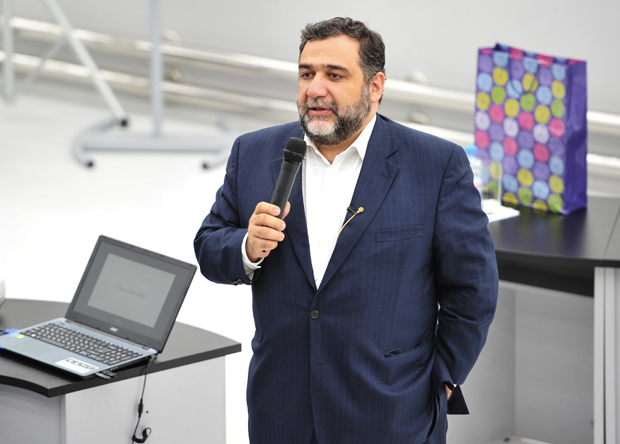 Ruben Vardanyan
Ruben VardanyanPhoto: MISiS NITU
Another meaningful issue is the role and place of the diaspora, and its involvement in the affairs of Armenia. Starting this dialogue is no simple task, as the elites both in Armenia and the diaspora are not quite ready for it, unfortunately.
Although an independent Armenia has been the biggest dream of Armenians worldwide, the Armenian elite in different countries has failed to self-organize and, apart from rare exceptions, move to Armenia, as many prominent Armenians did in the 1920s, when living conditions here were much worse than they are now.
Studies by McKinsey show that Armenia needs annual investment of USD 500mln in development projects for 15 years to double its GDP, and we can only dream about that right now.
It is evident to me that the relationship between Armenians in the diaspora and in Armenia cannot remain like it has for the last 25 years.
Well-off Armenians from wealthy diaspora families continue giving money to charity mechanically, but except for the diaspora in Russia, perhaps, there are almost no new wealthy and successful Armenians who do it systemically, like they used to.
In XX century representatives of the diaspora donated money necessary for keeping the traditions alive. However, charity is a form of support for the closed society too. Today money is needed for the development of the country, and that is far more complicated. Studies by McKinsey show that Armenia needs annual investment of USD 500mln in development projects for 15 years to double its GDP, and we can only dream about that right now. It is a perfectly achievable goal in the model of an open regional hub, and an impossible one in the old model.
– As for the new Prime Minister of Armenia, I see a certain danger in terms of the inflated expectations that some people have, as they saw a “ray of hope” in Karen Karapetyan and don’t want to pay attention to his words about not having a “magic wand”. He has to lead the country out of a profound economic crisis and at the same time win the support of society without sinking into populism.
– We should all realize the necessity of unconditional support for the President and Prime Minister in their efforts. Nothing will be achieved without that support.
We will face a situation where society will have more and more people losing their jobs or income sources.
The understanding that we are in a profound crisis should not lead to panic. On the contrary, an honest diagnosis and then concentrating all resources on the treatment will radically increase our chances of success.
We have to admit that the appointment of a new person to the position of Prime Minister offended a large group of people. If the model begins to change, the number of these people will grow. These processes started a year ago, when Samvel Karapetyan purchased the Electric Networks of Armenia. The company, which for years had been unprofitable and constantly demanded higher tariffs, in one year turned into an efficient and profitable enterprise. This means that some people lost their source of income, or their expenses increased and their businesses ceased to be profitable. Imagine what happens to them if they pay all their taxes and compete fairly on the market.
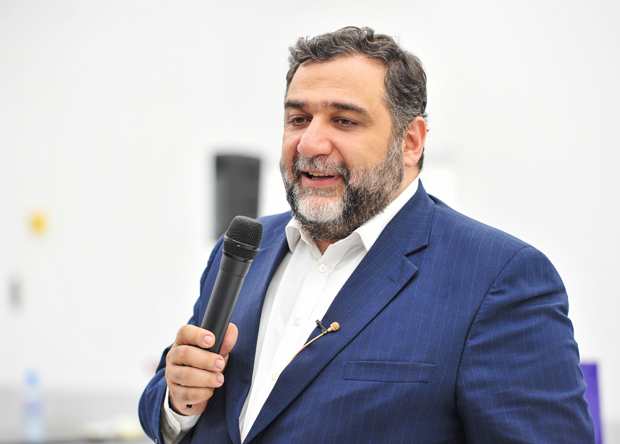 Ruben Vardanyan
Ruben VardanyanPhoto: MISiS NITU
We will face a situation where society will have more and more people losing their jobs or income sources. At the same time, the new Government of Armenia has a tough task at hand in proving to people that the Government is efficient. The task is further complicated by the fact that reforms, which begin with very painful changes, should be carried out several months prior to the elections, and that their results will be seen only years down the line.
In these circumstances, it is very important to have an open dialogue on all levels, where we bring things out into the open. We are afraid of talking about many problems, although there is nothing to fear if the discussion is held in a civilized manner. We should talk to people a lot and explain a lot, make unpopular decisions sometimes. The most important thing is to go through with these decisions, as “half-reforms” in our country can lead to a complete collapse.
- It is hard to accuse you of passiveness, as you do a lot in Armenia and for Armenia. Nevertheless, should we wait for new steps from you in support of the efforts of Armenian President and Prime Minister? Are you ready to be involved in solving problems with your intellectual resources and large connections throughout the world?
- The decision on involvement of people with different views in this kind of intellectual discussion should be made by the leaders of the country. On my part, I can assure you that IDeA Foundation is already fully engaged in supporting the steps that are being taken.
If Karen Karapetyan and his team succeed, that means we all succeed, and vice versa. His failure will be our failure as well, and Karen Karapetyan’s success is vital for all of us, and I would especially emphasize, for Artsakh.
We think that there is no alternative to the support for the Prime Minister and his team; we won’t get a second chance. After the approval of the new program, the government needs to put its plans into action immediately, and we are ready to contribute to this with our intellectual, financial, organizational and human resources, being completely aware of the fact that the program is still aimed at solving short-term problems and cannot reflect the full scope of the systematic changes required.
Not much time is left before the 2017 parliamentary elections, and there is, unfortunately, too much negative energy and anger within the public, which creates the threat of social unrest. Another serious challenge is apathy and indifference. It is very hard to wake people from their hibernation and stimulate them to get involved in the process of change. A lot of people, unfortunately, take this position - let him (Prime Minister-Mediamax) try, and we‘ll sit and watch. This is a very dangerous attitude, because as I said, we will not have time for a second chance. If Karen Karapetyan and his team succeed, that means we all succeed, and vice versa. His failure will be our failure as well, and Karen Karapetyan’s success is vital for all of us, and I would especially emphasize, for Artsakh. If we do not have a strong Armenia, we cannot possibly expect to reach the right compromise on peace, which is necessary for the whole region. The situation around this issue has escalated during the last year, so we do not have much time for this matter either.
- One of the unpleasant “discoveries” of the April war was the feeling that the public and the army do not understand each other well and exist separately from each other. The new Minister of Defense Vigen Sargsyan proposed an idea of forming a “nation-army”, and by the way, he has already been blamed for trying to “militarize the population”. What are your thoughts on this idea?
-I think we have no alternative other than to do it. I just do not see another option. Israel has lived with this model for decades, and it does not stop the country from being a democratic state. In Switzerland, quite a neutral and peaceful country, people keep weapons at home and regularly participate in military training.
We need to fundamentally change the situation where the army is a “burden” for the state budget and peaceful life, and create an atmosphere where young men and even women aspire to serve voluntarily.
We have a long way to go to change people’s attitudes towards the army, and I am glad that the new minister has decided to start by bridging that significant gap. For example, we do not have consensus within the public on whether it is shameful or not to avoid service. Nevertheless, the army’s combat readiness is not only about the material-technical abilities and new weapons, but by the level of support the soldiers and officers receive from society. An officer should not be ashamed of going out in his military uniform; on the contrary, he should be proud. We need to fundamentally change the situation where the army is a “burden” for the state budget and peaceful life, and create an atmosphere where young men and even women aspire to serve voluntarily.
- Your foundation issued two statements on Syrian Armenians during the last two weeks and outlined the actions you will support. In my view, the situation with Armenians of Aleppo clearly demonstrates the sluggishness of state and diaspora structures, and the lack of readiness to take action. Different structures quote different figures on the number of people wishing to move to Armenia. Other institutions assure us that everything is all right with Aleppo’s Armenians and the situation is not as bad as it seems.
-The conflict in Syria, which has unfortunately led to the devastation of one of the oldest and most flourishing Armenian communities in the Middle East and the destruction of the cradle of Christianity, revealed several problems. First of all, going back to the beginning of our conversation, Armenian elites do not feel responsibility for the future of their nation. The second problem, which the Humanitarian Index (a study we undertook as part of the Aurora Humanitarian Initiative) revealed, is the fact that people think it’s the government’s job to find solutions to these kinds of humanitarian crises, not theirs. And the problem here is not poverty of the government or the people, but the indifference and lack of faith in the possibility that the situation will change. It was difficult to imagine several decades ago that Armenians would not extend a helping hand and a piece of bread to their compatriots in distress. This is not a matter of welfare, but a matter of attitude. Through the Aurora Humanitarian Initiative we help children from Arabic countries, refugees from the Middle East. This is also a matter of attitude - their ancestors saved our ancestors 100 years ago despite living in conditions far from being prosperous. We as a nation, which survived genocide, cannot show this kind of attitude to what is going on not far away from Deir ez-Zor, where the bones of hundreds of thousands of our ancestors rest.
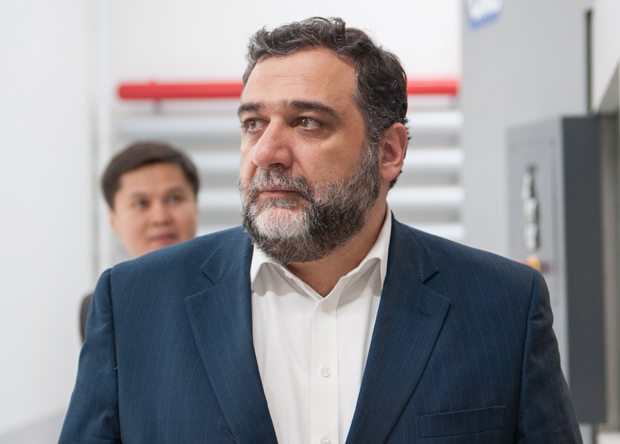 Ruben Vardanyan
Ruben VardanyanPhoto: MISiS NITU
There are many people in Armenia who want to help despite the difficult economic situation, but just don’t know how. This is why we decided to create a mechanism to coordinate these efforts. Our initiative not only aroused a big wave of positive energy, but unfortunately, some kind of behind-the-scenes commotion. I would like to add in regard to this that we did not and do not have ambitions to lead the process of supporting Syrian Armenians. Nevertheless, we do think that continuing to pretend that nothing is happening and looking at the matter of life and death of our compatriots as an extra headache, as many officials do, is unacceptable. There are different interests, “realpolitik”, but human life is invaluable. That is why we want to help in the creation of a mechanism to coordinate the efforts, providing maximum transparency and systematization, being completely aware of the fact that its only those who do nothing that criticize.
-We touched upon a number of tough questions, and I cannot help asking - are you an optimist or a pessimist?
- I am an absolute optimist, and I believe that despite all the hardships, we have a chance. I said a lot of times that the 21st century provides Armenians with a lot of opportunities. We need to get ready and take them, and we have all the advantages to do so. You have to keep putting one foot in front of the other.
Ara Tadevosyan talked to Ruben Vardanyan









